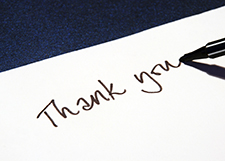Here’s what you had to say.
People like to hack things. If you don’t change your passwords often to protect your information, you’re putting yourself (and your company) at risk.
But changing passwords and keeping up with them is tough. And, honestly, more than a little annoying.
To find out whether our readers are changing their passwords enough, we put out a two-question survey earlier this month. Here are your responses:



